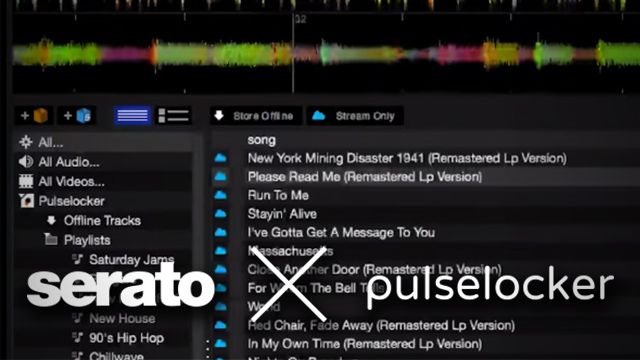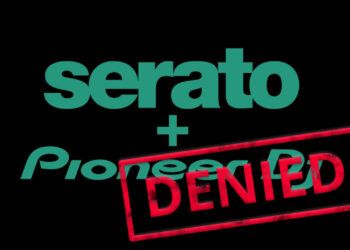At the Amsterdam Dance Event, Serato has announced a new groundbreaking partnership to integrated Pulselocker directly into their DJ software. Pulselocker, originally launched in 2012 as a streaming library and music store for DJs, has been relaunched this year. Their library being integrated directly into Serato DJ will allow access to 44 million tracks – read on for the details.
Pulselocker Streaming In Serato DJ
The concept is pretty simple – DJs who have a Pulselocker account will be able to access the entire catalogue in the browser sidebar, just like you would access iTunes or other libraries. Songs can be stored in a local copy-protected offline cache only accessible through Pulselocker or Serato DJ.
Pulselocker now has a library made up of over 44 million tracks from about 500,000 labels, and it also authorizes users to play the songs publicly – a big deal for DJs out there playing gigs who might want to not only get great music, but also the rights to play them publicly. Serato’s CEO AJ Bertenshaw makes it clear they wanted the most comprehensive library out there when adding a streaming service to the DJ software:
“At Serato, we always try to carefully choose each feature to be aimed at the professional DJ. When it came to connecting to a subscription music service, we wanted to make sure our offering was the very best available.”
You can make playlists in Pulselocker, and log into your account through any computer running Serato DJ, so if you want to bring all of your tracks over, it’s as easy as having an interenet connection. There’s an “offline” storage feature as well which allows DJs to keep a local copy of unlimited music from Pulselocker’s library without being online.

DJs can also use the search bar in Serato to do a master search, spanning both their local library and Pulselocker’s online catalogue. If you find what you want on Pulselocker, the tracks will cache the first 30 seconds “as quickly as possible for fast auditioning”. Tracks are downloaded at 320kbps – unless they’re provided by the label at a lower quality (256kbps). Metadata is stored locally for played streaming tracks and analyzed offline music – so if you sort your collection by key or BPM, those tracks will have metadata that make them show up in the software.
One downside – if you’re streaming music from Pulselocker, recording in Serato DJ is disabled – apparently part of the licensing agreement.
Of course, all of these features will require a paid account with Pulselocker – which pricing has not been announced for yet. Serato DJ will come with a full 2-week trial when 1.9 is release.
Pulselocker support is going to be integrated in Serato DJ 1.9, an update that is coming soon (they’re still working on releasing 1.8!).









